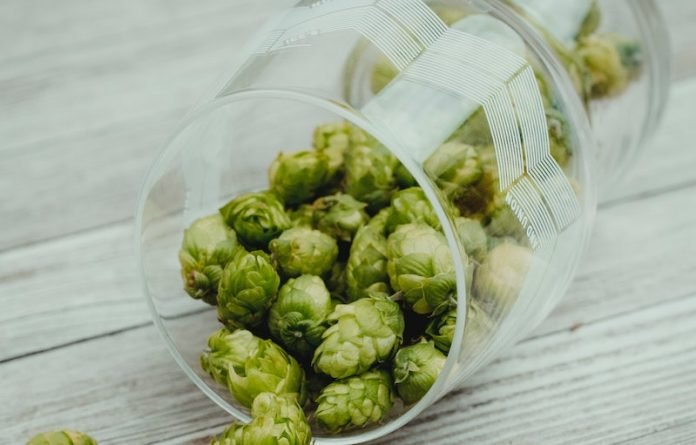
In a recent study from Oregon State University, researchers found a compound in hops may help thwart liver and colon cancer cells.
Hops are a type of plant that adds flavor, color, and bitterness to beer. The compound is called xanthohumol, known as XN.
The team also found that two important derivatives of the compound may help fight cancer cells too. The findings may help develop new cancer treatments in the future.
Colon cancer is the third most common cause of cancer-related death in the United States, and liver cancer ranks fifth. The incidence of liver cancer, though, has tripled in the last four decades.
Previous research has shown that XN inhibits cell growth in a variety of cancer cell lines.
In the current study, the team found that the compound XN is produced by Humulus lupulus, the common hop plant.
They showed XN’s ability to halt cell growth and kill two liver cancer cell lines and two colon cancer cell lines.
The team tested liver and colon cancer cell lines because the oral consumption of XN and its derivatives can lead to high concentrations in the gut and liver.
They also found the two derivatives from the compound have cancer-fighting effectiveness similar to that of XN in liver and colon cancer cells.
The derivatives also help fight metabolic syndrome, reducing weight gain.
The team says that for both liver and colon cancer, discovering new compounds for prevention and treatment is very important.
Their findings show that the hop compound XN and its derivatives DXN and TXN can inhibit cell growth and cause cell death.
The results may help develop new treatments for diseases in the future.
If you care about cancer, please read studies that Vitamin D levels in your blood may predict colon cancer risk, and why some processed meat is strongly linked to cancer while others are not.
For more information about cancer, please see recent studies about the cause of the spread of prostate cancer, and results showing this plant may cut cancer risk from processed meat.
The study was published in the International Journal of Molecular Sciences and conducted by Adrian Gombart.
Copyright © 2022 Knowridge Science Report. All rights reserved.



